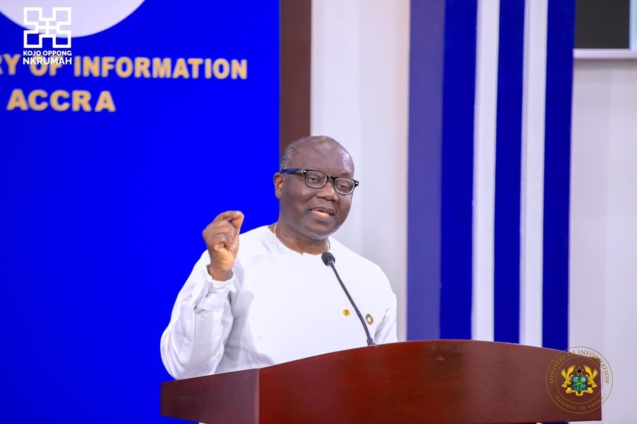Investors have started reposing confidence in the Ghanaian economy after the expected meeting between the government and officials of the International Monetary Fund from tomorrow..
Accordingly, Ghana’s Eurobonds gained for a second day, following the country’s decision to seek economic support from the Fund to ease refinancing stress.
According to Bloomberg, the country's Eurobond maturing in 2027 rose 1% to 65.82 cents, the highest in more than six weeks. The bonds had been trading at distressed levels, with yields above 20%, before Ghana announced last week it will engage the IMF for balance-of-payments support.
Stephen Bailey-Smith, a Denmark-based investment strategist at Global Evolution said the market had been concerned over the government’s financing needs in the short term.
“An IMF programme may also provide some gravitas to the government’s claims of fiscal reform”, he added.
While Ghana aims to cut its budget shortfall to 7.4% of Gross Domestic Product this year from an estimated 12.1% of GDP in 2021 that is becoming more difficult as price pressures emanating from Russia’s invasion of Ukraine take a toll on economic activity.
The inflation rate rose to more than an 18-year high of 27.6% in May 2022.
The economy, which grew 5.4% last year, expanded less than expected in the first three months of 2022 at 3.3%. Public debt increased to 78% of Gross Domestic Product at the end of March 2022, from 76.6% in December 2021.
Debt Vulnerabilities
“A potential IMF programme could play an important role in helping the country entrench its fiscal consolidation path and reduce debt vulnerabilities,” said Samantha Singh, a Johannesburg-based Africa strategist at Absa Bank Ltd.
“The sooner these policies are implemented, it could also reduce the severity of any potential liability management”, Samantha Singh added.
An International Monetary Fund staff team, led by Carlo Sdralevich, Mission Chief for Ghana, will visit Accra from July 6th to 13 to begin initial discussions with the Ghanaian authorities about a possible IMF-supported programme.
While rollover risk is expected to intensify for many African sovereigns over the next decade, due to the war in Ukraine, lower-rated borrowers like Ghana, Tunisia, Kenya, and Egypt are already facing difficulties securing market-based financing and are vulnerable to a rise in borrowing costs, Moody’s Investors Service said in a report last week.
Ghana has $7.3 billion principal repayments due on outstanding Eurobonds by 2032, according to Moody’s.
Egypt has $26.9 billion, Kenya $5.1 billion and Tunisia $3 billion.
The IMF and other multilateral lenders helped stabilised vulnerable African markets through emergency funding during the pandemic, but not all of them chose to accept assistance, said Kaan Nazli, a money manager at Neuberger Berman.
Latest Stories
-
GJA elections committee chairman reaffirms commitment to credible polls
39 minutes -
Visa denial is not deliberate; adhere to the rules – U.S Consul General
49 minutes -
Part of Accra Sports Stadium still closed as NSA lacks funds for repairs
51 minutes -
Haruna Mohammed calls for amendment of political parties act to enable financial independence
1 hour -
Stakeholders advocate professional development for teachers in the standards-based curriculum
1 hour -
Sheffield United invited entire Shooting Stars team for trials because of me – Rashid Fuseini
1 hour -
Do not apply for visa through agents; they are liars – U.S. Consul General
1 hour -
Quash order to restore Nii Adama Latse II – Nii Tackie Tsuru urges Supreme Court
1 hour -
Ghana Maritime Authority executes second successful offshore medical evacuation in months
1 hour -
Bond market: Turnover increased by 13.17% to GH¢1.33bn
1 hour -
Israel says Iran violates ceasefire, orders strikes on Tehran
2 hours -
Hearts of Oak reassign Ouattara as Special Advisor after hiring Didi Dramani Head Coach
2 hours -
Fix the cracks first – Patrick Boamah advises NPP ahead of flagbearer race
2 hours -
Ghana’s youth innovation model can power Africa – NYA boss tells Cape Town summit
2 hours -
New Edubiase CEO reveals $24,000 payment owed to colts club in Salim Adams transfer saga
2 hours

